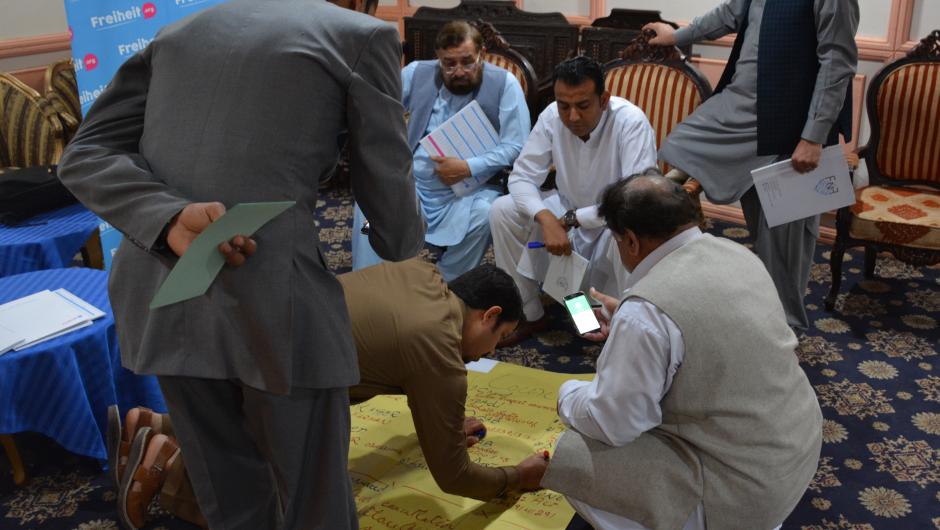Out of the Silo

Pakistan is all set for the general elections on July 25. Once more this is expected to be a highly charged democratic exercise. The outgoing government is facing strong opposition regarding accountability, transparency and the overriding issue of governance.
“In the last few years, a positive element has been observed and civil society and the media are bringing these matters into the limelight” says Hamza Khan, Project Coordinator at the Islamabad office of the Friedrich Naumann Foundation for Freedom (FNF). “The elections are bound to be one of the most pivotal contests of all times,” he adds.
While this may hold true for the metropolitan areas and Pakistan’s urban centers, the situation in the rural areas is different. The politicians often leave smaller districts aside because their vote share is less important for them. For a country with more than 120 districts, equal opportunities are essential for balanced development. Here civil society may play a crucial role: Engaging district based NGOs, media representatives, citizens and entrepreneurs is important to empower the communities and create platforms for policy debates.
DLG Pakistan
With this in mind, the Friedrich Naumann Foundation for Freedom (FNF) with the support of the European Union Delegation has rolled out a program that provides various forums on the district level where the citizens and local authorities can engage actively on issues of governance and public service delivery. Titled “Democratic Local Governance” (DLG) this project has designated one civil society organization as a driving force in each of the selected districts. Importantly, these organizations partner with experienced and typically more professional NGOs at the national level. This linkage has proven important for the effective organization of educational activities, research and designing strategies.
In one case, a citizen complained about inadequate facilities at the District Health Quarter (DHQ) Hospital, which is the main health facility of the area. The issue was brought up in one of the meetings of the civil society group and the local authorities – opening an avenue of communication not known thus far in this part of the country. Uncounted such interactions happen in the context of the program. The district level meetings of citizens and local authorities are moderated by an NGO person who makes sure that the people’s concerns are raised – and the authorities don’t turn a blind eye on them. “The process also aims to ensure transparency and accountability of public funds, a highly sensitive matter”, says Mr. Khan.
For this, the Right to Information Act (RTI) has proven an effective tool. “Also in Pakistan RTI has emerged as an instrument that favors citizens and government both at the same time” says Mr. Khan. It is now a vital part, yes strategic element, of the program with the media playing an important – supportive – role.
“Democracy is an evolving effort that will not be achieved in a silo”, concludes Mr. Khan. It can be practiced on a daily basis and the closer to the people this happens the better the outcome – for the citizens.